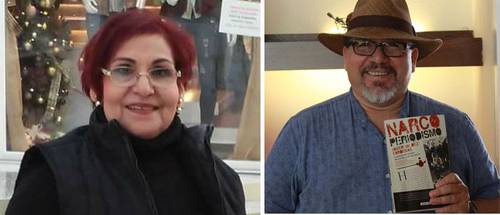Violence that does not stop, Protection that is not enough
Originally Published in La Jornada
Opinion piece by Jan Jarab, Representative for Mexico of the UN High Commissioner for Human Rights

May 16, 2017
In terms of the safety of journalists and human rights defenders, the first four months of 2017 have been chilling: at least five murders of journalists, two defenders and two escorts of beneficiaries of the National Protection Mechanism. But the nightmare seems endless. In recent days, in less than a week, two new victims have been addeed to the list - a leading figure in the movement of families of disappeared people of Tamaulipas, Miriam Rodríguez, and prominent journalist Javier Valdez, in the capital of Sinaloa.
It's not only two additional statistics but two exemplary, exceptionally brave human beings with a heroic trajectory. In her struggle for truth and justice, Miriam Rodriguez faced the State's inability to search for missing persons and carry out due investigations. And she achieved something exceptional: not only she found the remains of her missing daughter but she also identifyed the alleged perpetrators and ensured that they were prosecuted. Miriam was murdered in front of her house on Mother's Day. Javier Valdez wrote about the power of the narco. In March, he tweeted about the murder of Miroslava Breach, another brave journalist investigating the links between organized crime and political power, asserting that he would not be silenced. Yesterday bullets silenced Javier, at a close distance from his office.
While murdering anyone is condemnable, the murder of a human rights defender sends a terrible message to those who are fighting for a better society. Similarly, the murder of a journalist affects not only his immediate environment but society as a whole, because by silencing a journalist, the right of the entire society to be informed is violated.
In addition, the murders of Miroslava Breach and Javier Valdez, both correspondents of La Jornada, show that being recognized is no longer synonymous with protection. Proof of this is that, in 2011, Javier Valdez received the International Prize for Press Freedom, granted by the prestigious Committee for the Protection of Journalists (CPJ). Furthermore, Isidro Baldenegro, defender of the rights of indigenous peoples, who was assassinated last January in Chihuahua, was not protected by the fact that he had received the equally prestigious Goldman Prize.
Authorities often attribute the responsibility for all these horrors simply to narco. But to say this is an easy way out, for three reasons.
First, because according to international standards, the State has a duty to protect. In a federal country that includes both levels: the federation and the federative entities. Instead of pointing fingers out to each other, they should both develop a comprehensive protection policy - they need to show that they really do everything they can to protect those who are threatened.
Second, there is a sphere of collusion between authorities and organized crime and because, in many cases, State agents commit serious violations of human rights. In fact, when it comes to disappearances, families have told us that a high percentage of them are enforced disappearances, that is, committed by state agents or by persons acting with their support, authorization or acquiescence. Similarly, organizations dedicated to the protection of journalists find that in many cases the threats come from agents of the State.
There is a sphere of collusion between authorities and organized crime and, in many cases, State agents commit serious violations of human rights.
And third, because the vast majority of the 125 murders of journalists committed between 2000 and 2017 - according to the CNDH - has gone unpunished, as have disappearances. The Office of the Prosecutor for Crimes against Freedom of Expression has, to date, been an example of ineffectiveness. The State is, without any doubt, responsible for this vicious circle of impunity. If this does not change, all protection measures are going to be short and will be mere palliatives.
After this new wave of assassinations, it is quite likely that we will hear appeals to launch a "tough hand" policy against organized crime. But what is needed is not a tough hand. What is needed is Rule of Law.
Original publication: http://www.jornada.unam.mx/2017/05/16/politica/009a1pol
